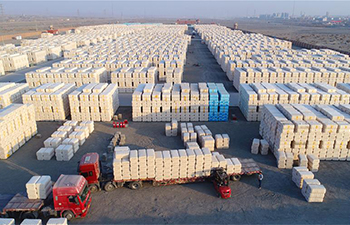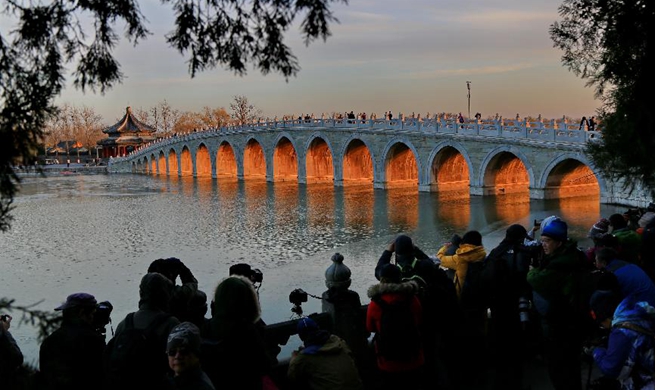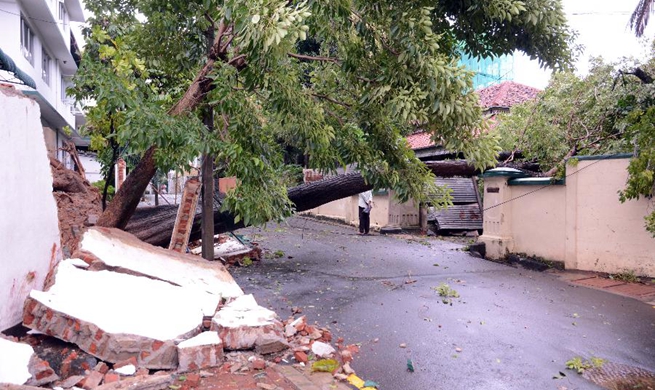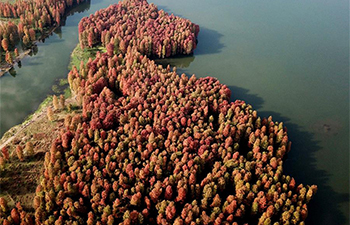SHIJIAZHUANG, Nov. 30 (Xinhua) -- A city in north China's Hebei Province on Thursday issued its first red alert for air pollution this winter, forecasting smog in the next four days.
The alert, the highest in China's four-tier color-coded warning system, went into effect at 12 p.m. in Xingtai, about 400 km southwest of Beijing, said the city's leading group on air pollution prevention and control.
The city is forecast to see severe air pollution starting Friday as weather conditions will not help disperse air pollutants in the next four days, it said.
Under the alert, high-polluting local firms halted production and construction sites stopped work.
Kindergartens, primary and middle schools will not hold outdoor activities and may operate on flexible schedules.
Also starting Thursday at noon, another nine cities in central and southern Hebei, home to several of China's most polluted cities, launched the second-highest emergency response for air pollution.
In the 10 cities, more than 18,000 firms will halt or reduce production, helping to reduce the amount of pollutant emissions by over 20 percent during the period.
The Beijing-Tianjin-Hebei region sits in the heart of the North China Plain, where air pollution, particularly winter smog, occurs as a result of the high concentration of industrial and vehicle emissions, limited air circulation and the burning of coal.
More residents are increasingly worried about the health impacts, particularly of PM2.5. The smaller particles pose a greater health threat as they can reach deeper into the lungs than larger particles.
China has set a target to reduce the average PM2.5 level by at least 15 percent in the cities around the Beijing-Tianjin-Hebei region between October 2017 and March 2018, compared to last year's level.
After the closure of small polluting firms and use of more clean energy in the winter heating season, the average PM2.5 level in Hebei between Oct. 1 and Nov. 28 declined 25.3 percent year on year, according to the local meteorological service.

















